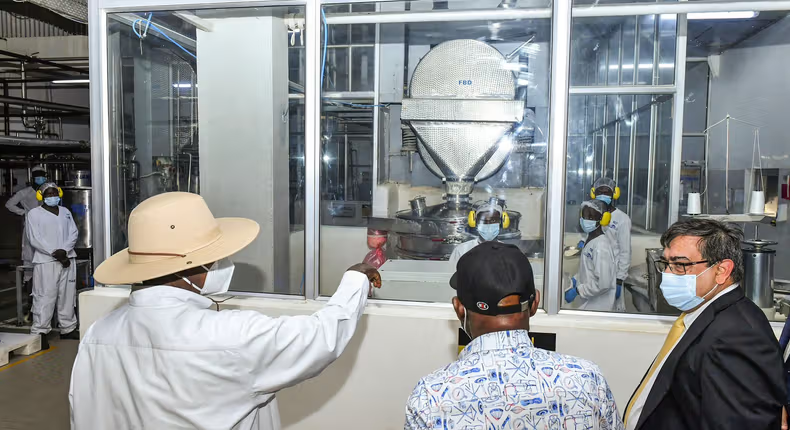Uganda is set to boost its revenue from export with the sale of milk and coffee. This comes against the back drop of a major increase in production from 2.51 billion litres in 2018 to 3.85 billion litres in 2024.
Presently, the country sells the majority (80%) of its milk exports to Kenya, with food products crossing the border three times between June 2022 and June 2023.
However, that is about to change as they are set to expand their sale into West Africa, especially Nigeria. During his visit to Uganda, Former Nigerian President Olusegun Obasanjo said that Africa’s most populous country will begin importing milk and coffee from Uganda.
Uganda’s Youweri Museveni took Obasanjo to the Pearl Dairy Farm Company Limited in Mbarara City while they also met with farmers in the Karo, Kiruhura District.
- Advertisement -
Obasanjo was pleased to learn that Uganda can produce 5.7 billion litres of milk annually and assured President Museveni and farmers in Kiruhura and Kazo districts that Nigeria was willing to buy processed milk and coffee from Uganda.
President Museveni thanked Obasanjo for strengthening the partnership and acknowledging Uganda’s ability to meet local and international milk demand.
Minister of Livestock Brett Rwamirama noted that Uganda’s exports currently stand at US$264.5 million. He told farmers that the government planned to kill ticks to increase milk production and that levels of tick repellent were high before the use of the drug.
In June, the Nigerian government introduced a dairy policy that has saved about $1.5 billion in annual export costs. The country consumes about 1.6 billion litres of milk yearly, but domestic production currently cannot meet demand.
To fill the gap, Nigeria imports milk from many countries, mostly outside Africa, including New Zealand, France, Ireland and other European producers.










